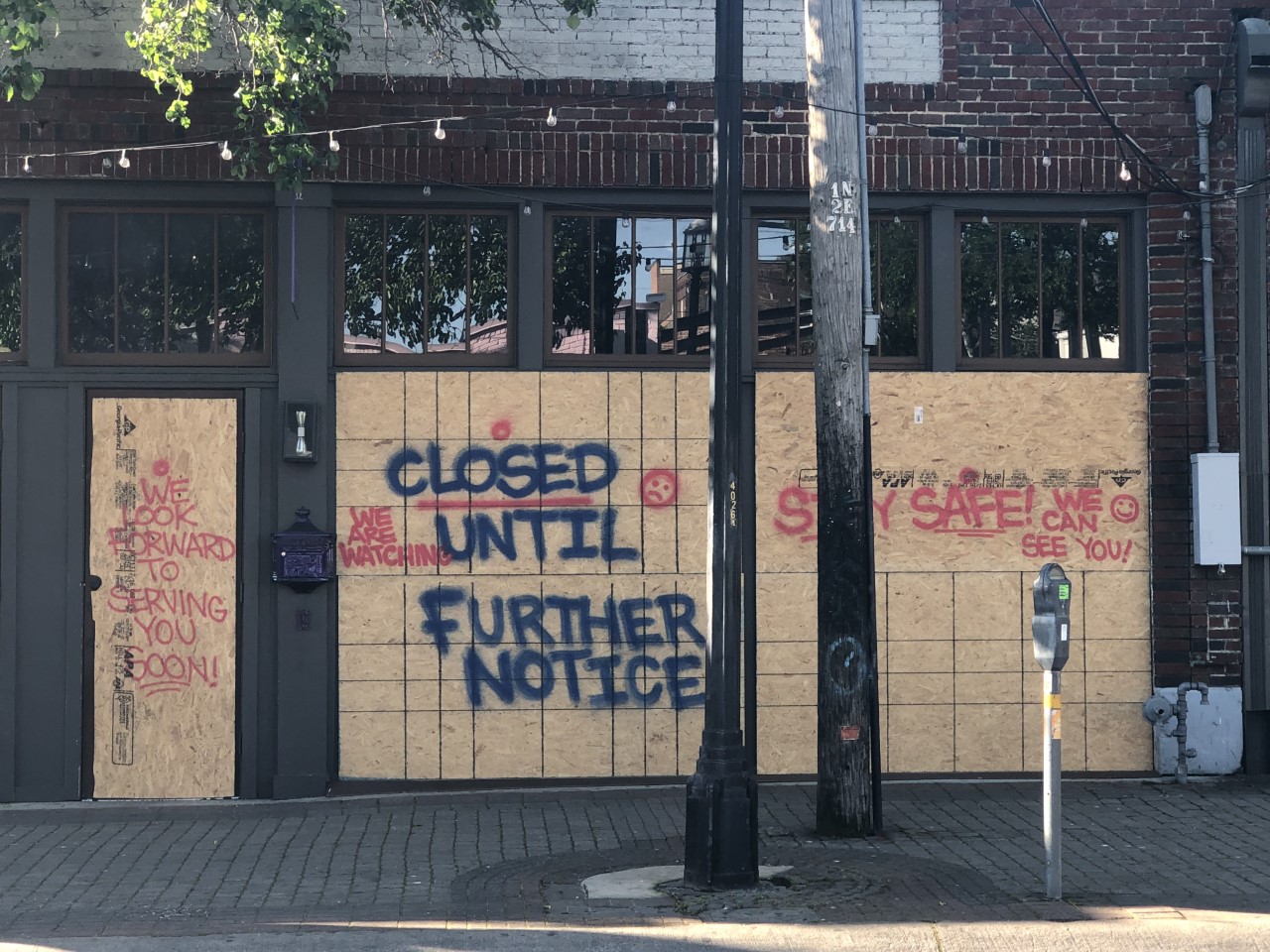Restaurants, forced into serving takeout to slow the spread of coronavirus, saw their margins go from razor-thin to narrow as a speck. And their rent is still due.
In an interesting predicament are the landlords, who don’t exactly have another tenant waiting in the wings. Similar to their occupants’ conundrum, their mortgage payment is still due. It’s a complex and high-stakes equation.
“Things more or less dropped off a cliff on March 15,” says David Spence of Good Space, who owns the properties occupied by Lucia, Dude Sweet Chocolate, Emporium Pies, Joy Macarons, Encanto Pops, and Tiny Victories in Bishop Arts.
As a landlord of small businesses, Spence says his goal is “to open with the same constellation of restaurant owners that I have right now.”
That said, he’s cognizant that with mom-and-pop businesses, no bright lines exist between business and personal finances. He’s amended leases and adjusted payments hoping, selfishly, “to be among my tenants’ favorite creditors on the back end of this,” he says. “It’s not in my long-term interest to deplete their personal cash reserves.”
Rent will not be forgiven but can accrue, according to him, “indefinitely.”
“I’m trying to preserve tension in the spring of my little economy,” he says, “so that when this exogenous force is lifted, there’s tension in the spring, and we can rocket back.”
Small mom-and-pop businesses are more likely to spring back faster if they’ve weathered. “My focus is not revenue right now. My focus is on the long-term.”
Shad Kvetko, co-owner of Las Almas Rotas mezcaleria recently extolled his similarly understanding landlord, Madison Parters. His Expo Park agave enclave is one small holding among a concentration of others in Deep Ellum.
Though there’s no official policy currently, Kvetko said he appreciated the grace of not pushing him to pay his rent. He has adjusted his model to include cocktail kits and take-away bites under fluttering pennants in the side alley they’ve converted into a drive-thru. “I don’t think they’re in any hurry to have another vacant storefront. I’m doing a happy dance.”
Other landlords don’t have such a luxury. Many are in positions of having lenders they themselves must satisfy. For David Eitches of Eitches Management Group, the block of restaurants and food-related retail that holds Khao Noodle Shop, Mai’s, Top Round, and Pickletopia on Bryan Street in East Dallas is one holding in a portfolio that comprises 23 residential properties. He was surprised to receive a letter from those Bryan Street businesses seeking full rent forbearance for three months.
Eitches had previously offered to cut rent in half. Communication, he says, had fallen through. He’d received no response to his initial 50 percent reduction offer. [Note: exchanges with tenants present disputed facts.] Eitches would like tenants to keep in mind he says, that he, too, must satisfy his lenders. This week, Khao Noodle announced it would be closing indefinitely after service on Saturday.
“Everyone has to look at this like we’re all in this together. If I fail, we all fail. If I go out of business, they go out of business. I’m trying to do all I can,” he says. “My reserves are what they are.”
With no cash flow and 90 percent of his debt exposure in residential apartment assets that represent 1,700 units, he estimates that a 20 percent vacancy in April and 25 percent vacancy in May and June would dry his reserves “very quickly.”
“It needs to be a fair playing ground between where the tenants are and where the landlords are.”
He says his greatest frustration is the lack of relief for landlords, which was not addressed in the recent stimulus package signed by Congress. The trouble, he says, is that his debts aren’t forgiven. He can’t extend relief if he’s not getting the same relief from his lenders. It’s a systemic problem of liquidity.
“It’s a matter of time, once the relief is given to the landlords from the lenders. But there’s a huge bottleneck right now,” he says. And he apprehends both a misconception about victimhood and a disconnect in the notions of revenue streams.
“There’s relief being asked for [on the part of landlords], but no relief given to landlords.”
The bottom line: they’re in it together and communication is key.
“The landlords understand that they’re in the same boat with us,” Bryan Dunn told me recently.
His Regalis Foods is another small, food-related business that’s pivoted in response to the shuttering of the restaurants he once supplied. He and his tiny team deep-discounted its inventory of high-end products like truffles and caviar. In doing so, they lost slightly less than they would have had they not opened swiftly to retail, but finances are still rocky. His landlord, Champions Management, offered a rent reduction of 50 percent that’s helped him keep the company alive.
“Our goal is to not close our business. And to not cut off everything we’re doing,” says Suzie Nash of Champions Management.
“We’re in business with our tenants, really: if they don’t succeed, we don’t succeed.”
Among the rental concessions that represent 360,000 square feet of wholesale space, the family-owned company is not offering unilateral reductions.
“We wait for them to come to us, and that gives us a barometer,” she says. “We ask them to make a proposal to us. ‘What does your cash flow look like? What can you pay?’” Her goal is to compromise.
“We really appreciate communication. That’s the key to us,” she says. “Don’t just go dark. We have to plan, too.” The goal is to plan for a two-year recovery. “If we plan that and it’s better than that, that’s great. I’m sure it’s gonna be different month to month,” she says.
None of this is new for Nash, who weathered the financial crisis of 2008 and an earlier one in 1986-87. She recalls the latter as being even harder, a real estate boom leading to a glut of building purchases suddenly riddled with vacancies. She’d started in real estate in 1984, she says. “I thought it was all my fault.” Though it is no one’s fault. That, in itself, is the complexity.
There are silver linings to the current scenario. Chef Misti Norris of Petra and the Beast in East Dallas had money set aside for this month’s rent and has found that her lower operating expenses have been a boon. The cost of running the restaurant has plummeted in the absence of physical diners.
“Our electric bill, water bill, our linen bill,” she says, as well as daily inventory—which is far more tailored in a daily take-out model—and payroll.
“It almost evens out,” she says.
Almost. Though add to that the burden of sales taxes, which the state has been in a quandary about deferring. She’ll reach out to her landlord if she feels she needs it. Austerity, though, is not new to her and the team. The current situation reminds her of her gutsy food laboratory’s first days, when they opened on zero budget and paper boats.
“We’re used to it,” she says. That is, used to not making that much. “So it doesn’t hurt as bad.”






